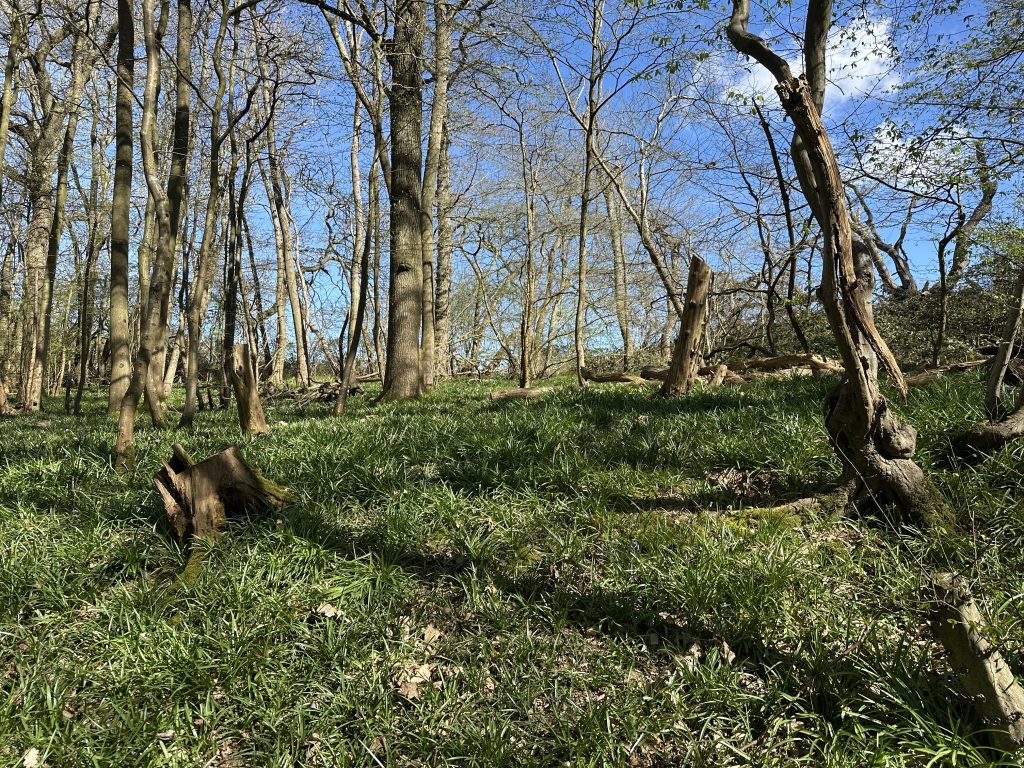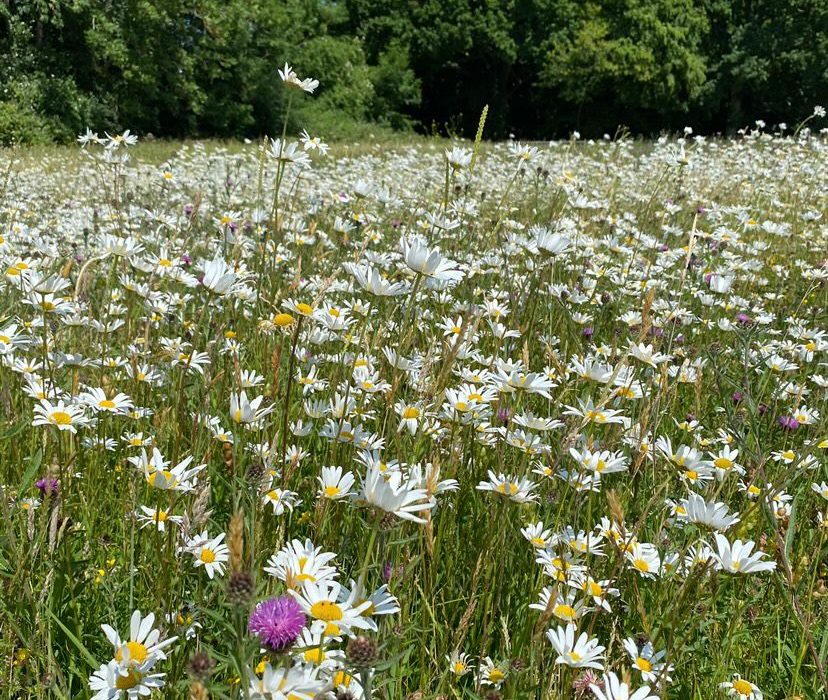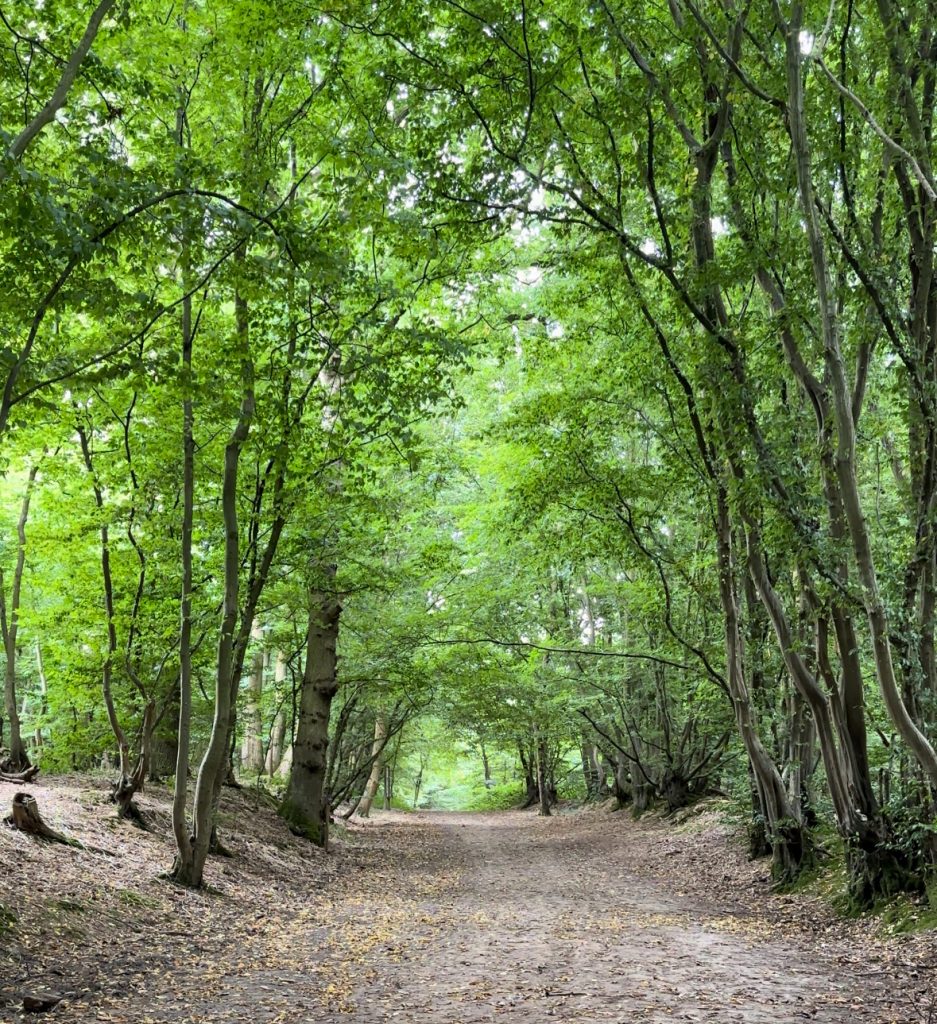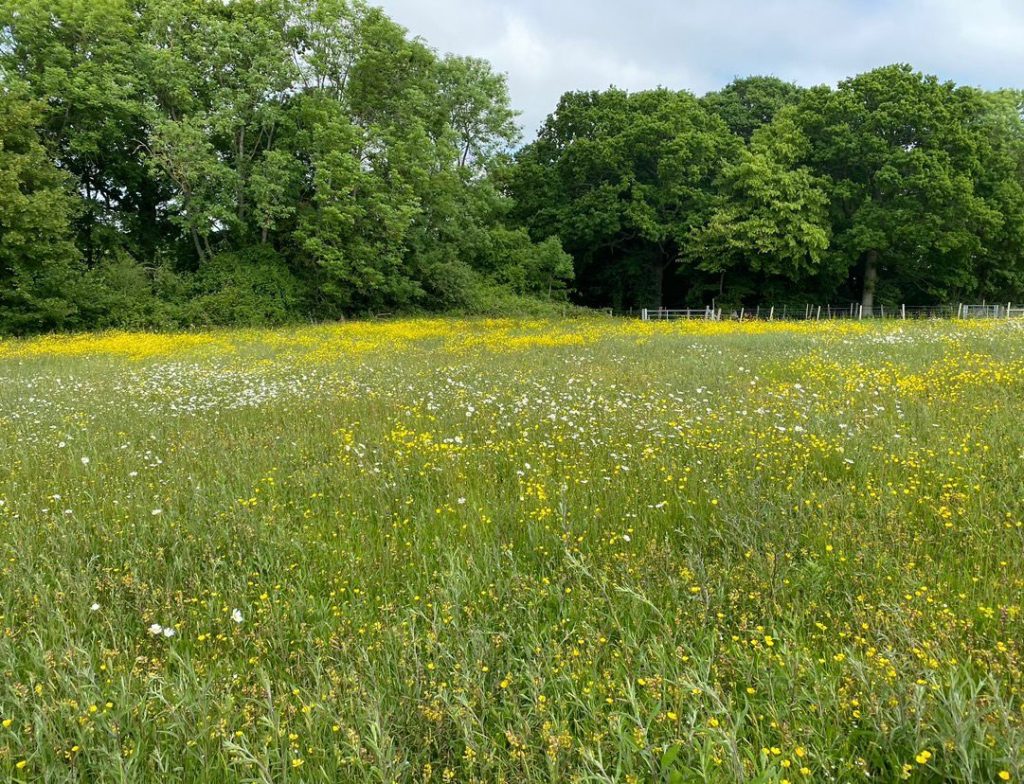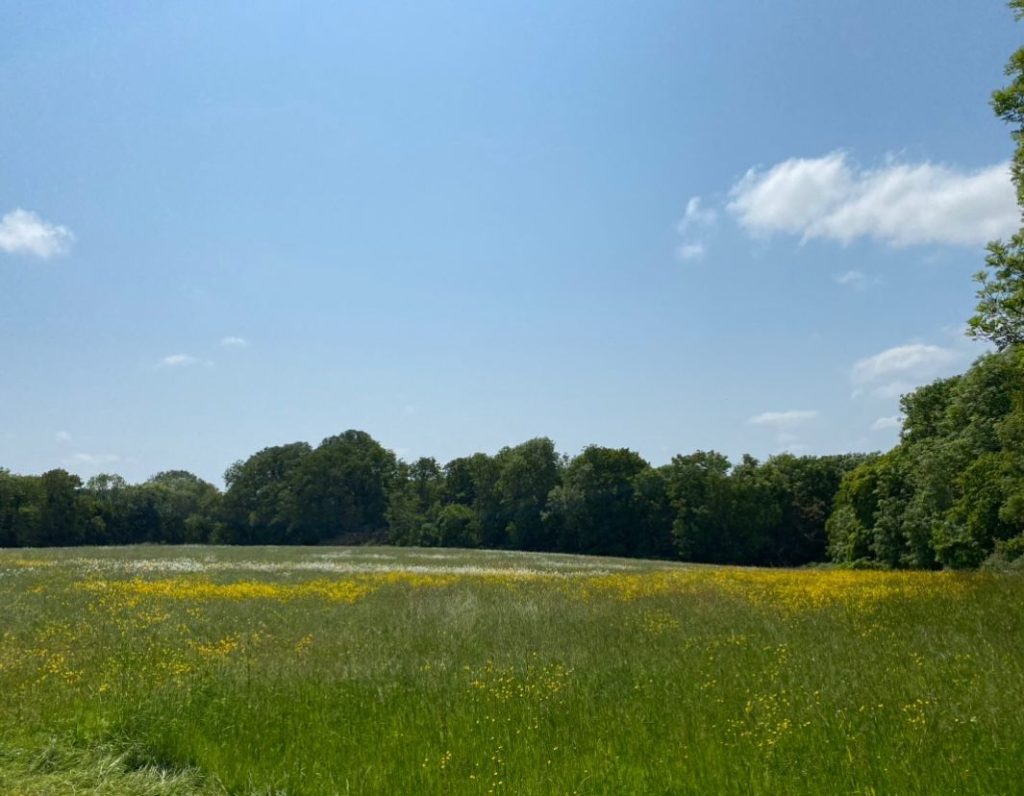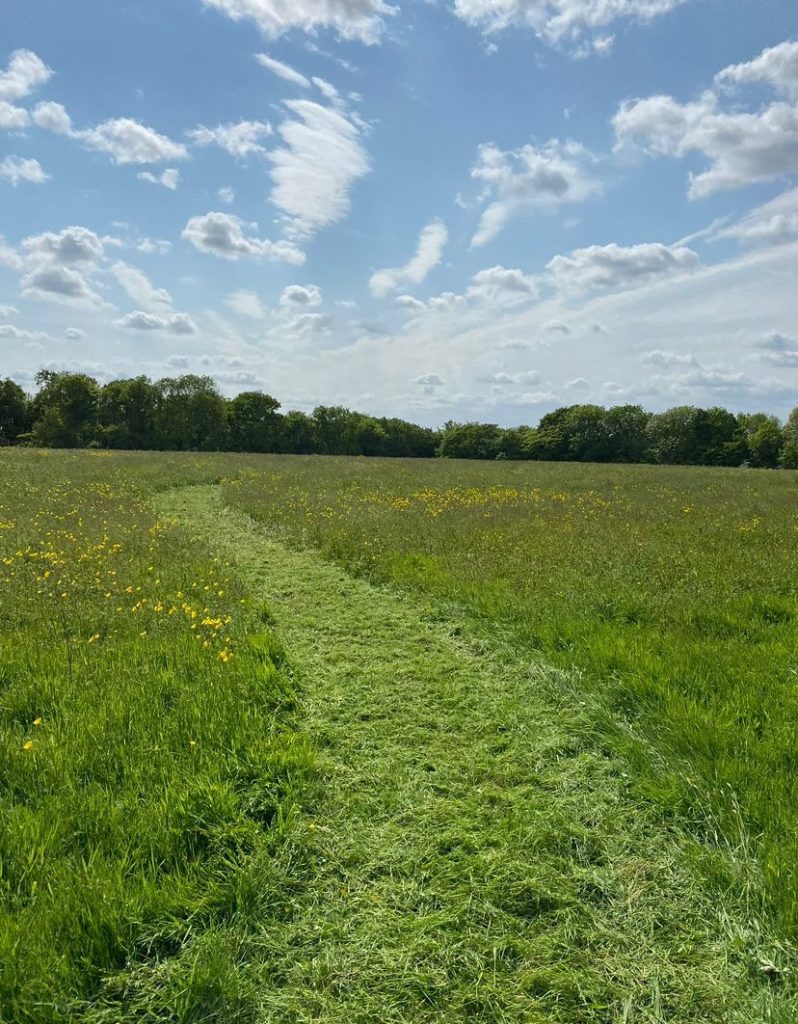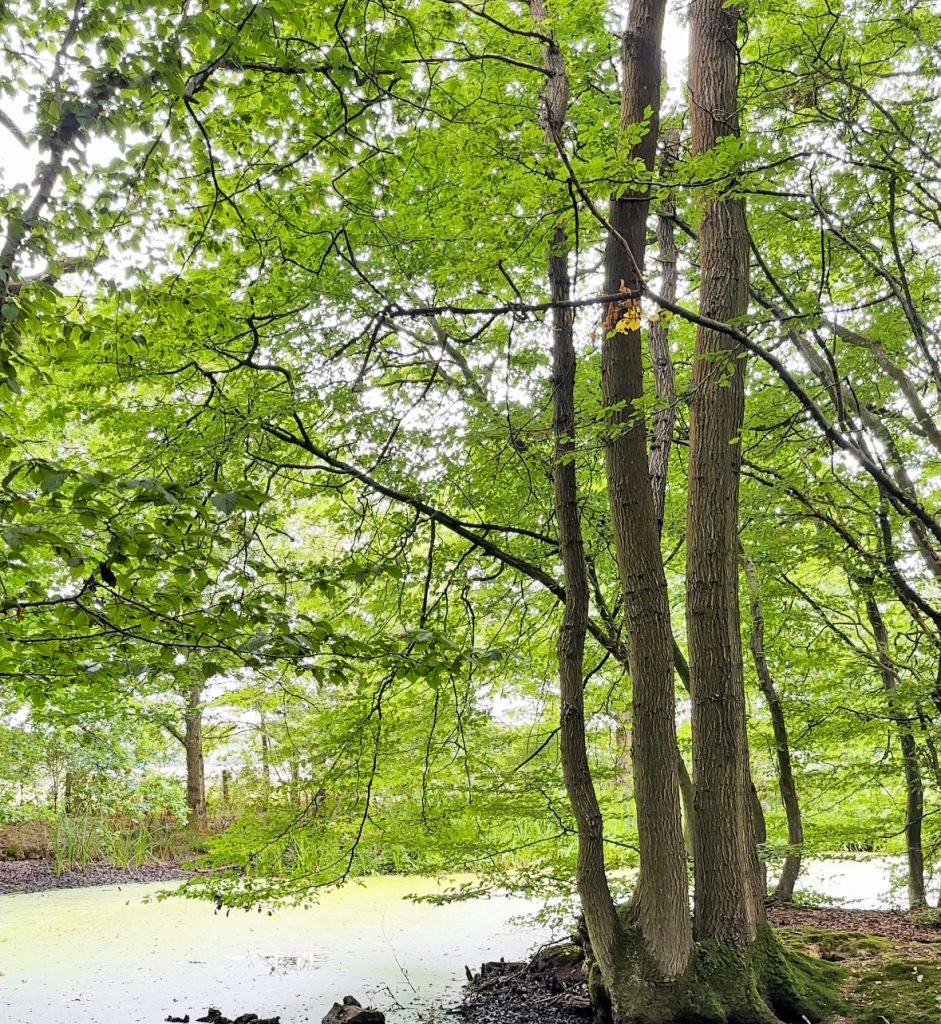World Nature Conservation Day!
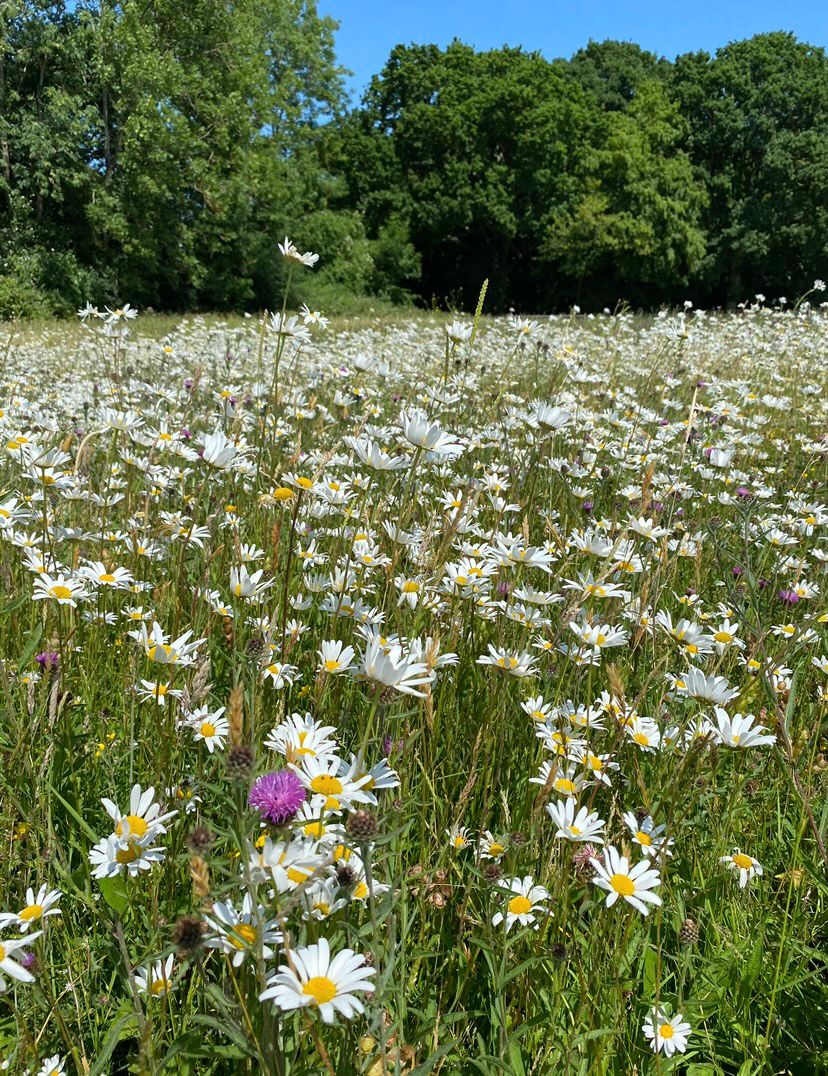
Today, 28th July, marks World Nature Conservation Day, a day dedicated to raising awareness about the vital importance of protecting our natural resources and preserving the environment for future generations.
We’re excited to welcome our new Environmental Conservation Officer, Mark, who joined the Rare Breeds team last week. Below, Mark shares insights into his role, his passion for the environment, and his hopes for the future of conservation on the farm.
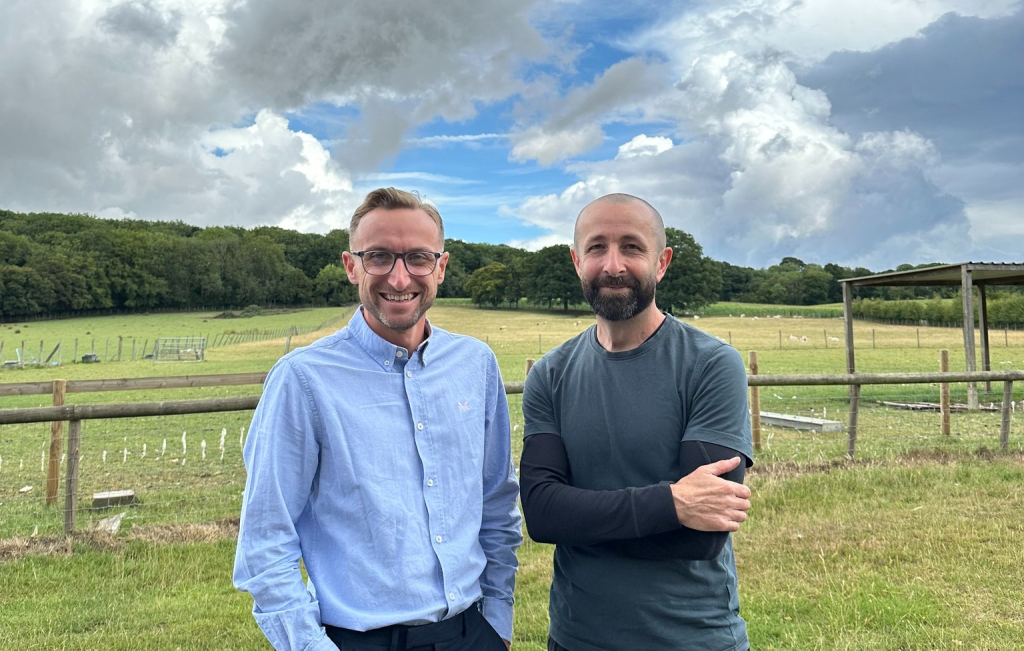
Mark, right with Howard, our Director of Commercial Operations
Mark’s ethos
As Environmental Conservation Officer at Rare Breeds Centre I am responsible for managing and improving the biodiversity of the woodland, wildflower meadow and ponds at Highlands Farm. My background in forestry, primarily working sweet chestnut and hornbeam coppice in semi-natural ancient woodland in Kent, and relying on traditional methods such as using heavy horses for timber extraction, has laid the foundations for my woodland ethos that now guides my approach in all the management and conservation work I do.
Managing woodlands
The demand for the woodland products that gave rise to the managed woodlands we are surrounded by in Kent has waned over the last couple of hundred years or so, meaning many woodlands have been neglected and are now in poor condition. If these woodlands are managed in a similar way to in the past, which means the maintenance of open rides and pathways, the periodic felling of coppice and the thinning of new plantations, then the increased light levels and resulting regrowth are what drive the biodiversity gains we are after. For it to be a truly effective and holistic approach then we need to find uses for absolutely all the product as well. Specifically, here, the wood and any cut hay. Conservation for the sake of conservation will only get us so far.
A holistic approach
All the work we do here at Rare Breeds Centre needs to subscribe to this holistic ethos of informed management, minimal damage, zero waste and disciplined and timely interventions. This will result in a sustainable and biodiverse landscape that can be enjoyed by everyone who visits the farm and surrounding countryside, because a healthy and biodiverse landscape is a beautiful one. Ultimately, it’s about simply having a kind and considerate relationship with the natural landscape that surrounds us.”
Learn more about Conservation around the trust. Our conservation projects involve a great deal of dedicated work. If you’re interested in sponsoring one, learn more here.
